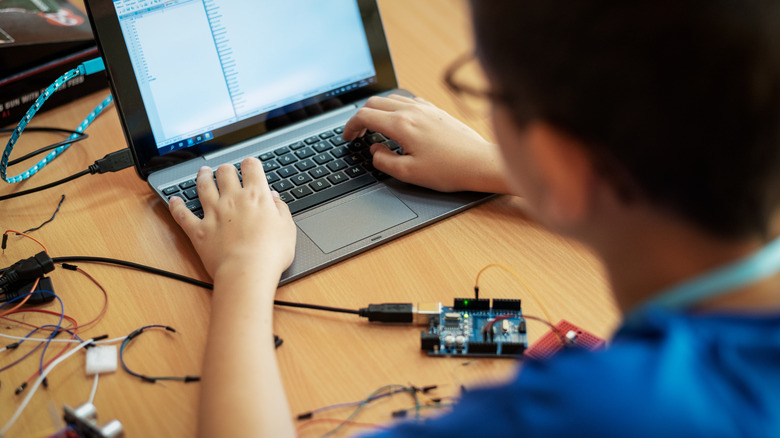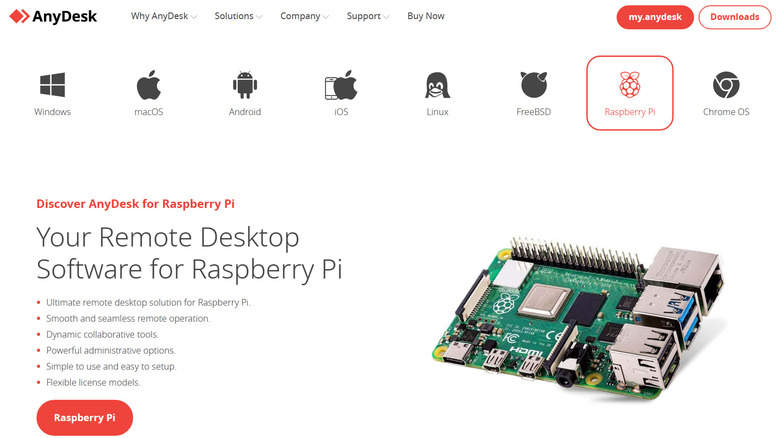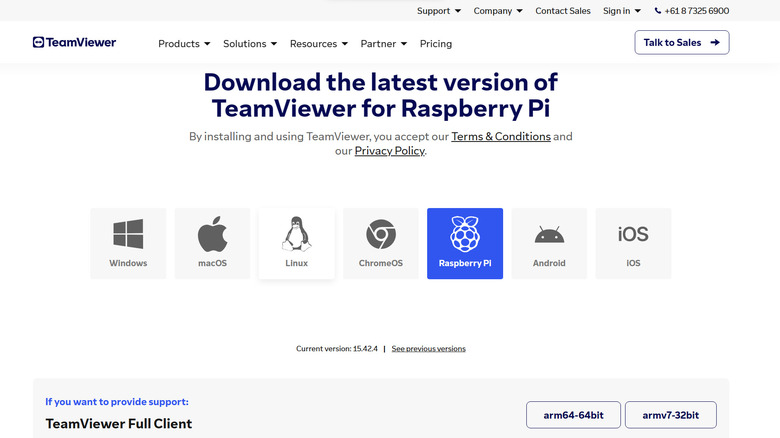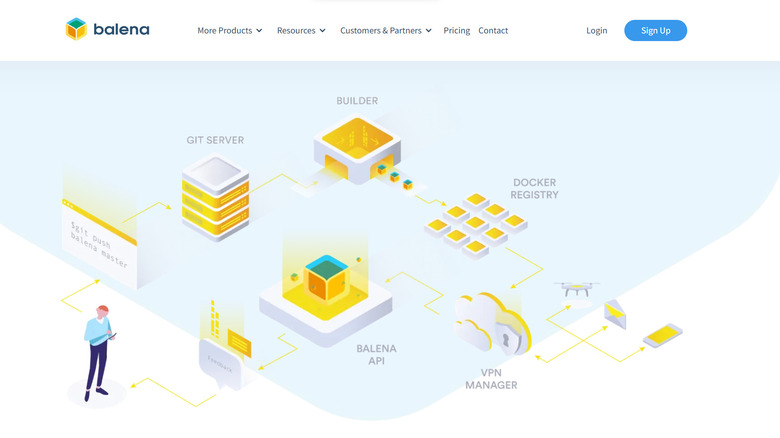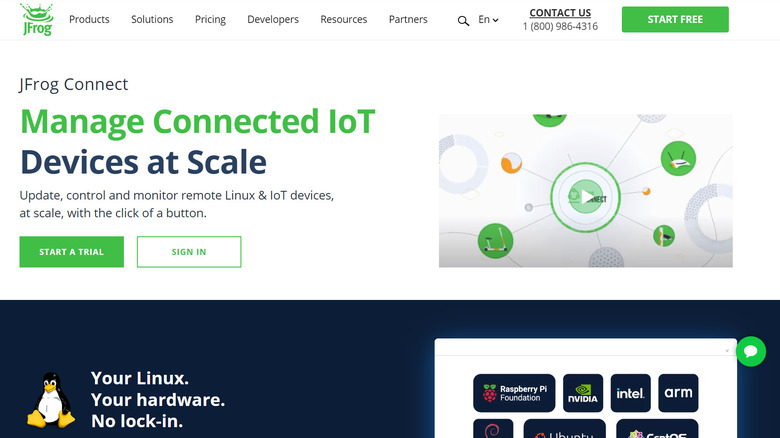5 Ways To Manage Your Raspberry Pi Remotely
When it comes to Raspberry Pi management, the ability to oversee and control these devices remotely is an important consideration. Traditional methods such as SSH tunneling, VPNs, and VNC have long been used as solutions for remote access. SSH, or Secure Shell, offers users remote access to the command-line interface, making it ideal for text-based operations. Virtual Private Networks establish secure connections over the internet, allowing users to access their Raspberry Pi as if it were on the local network. Meanwhile, Virtual Network Computing facilitates graphical desktop-sharing, enabling seamless control of the Raspberry Pi's interface from a distance.
However, this article will focus on software programs explicitly designed for the remote management of Raspberry Pis. While traditional methods serve their purpose, these specialized tools go beyond the conventional, offering enhanced user experiences with features tailored specifically for Raspberry Pi management. From streamlined deployment processes to real-time monitoring, fleet management, and advanced automation, these tools promise to elevate the remote management of Raspberry Pis.
AnyDesk
Designed for cross-platform compatibility, AnyDesk enables users to easily access and control their Raspberry Pi remotely. To initiate remote management using AnyDesk for Raspberry Pi, users must first install the AnyDesk application on both their local machine and the Raspberry Pi. Once installed, a secure connection can be established, giving users real-time access to the Raspberry Pi's desktop environment. This is particularly advantageous for managing graphical applications or troubleshooting scenarios that require a visual interface.
AnyDesk is also great if you are looking for performance because the app offers low-latency remote connections. The lightweight nature of AnyDesk contributes to its efficiency, making it well-suited for resource-constrained devices like the Raspberry Pi. AnyDesk's file transfer capabilities allow users to transfer files between their local machine and the Raspberry Pi, facilitating tasks such as updating configurations, uploading scripts, or downloading logs. AnyDesk also prioritizes security, implementing encryption protocols to protect data during remote sessions.
When it comes to pricing, AnyDesk offers a range of plans suitable for both personal and business use. While a free version is available for non-commercial use, premium plans provide additional features such as unlimited endpoints and custom alias branding.
TeamViewer
TeamViewer is a widely used remote management software that extends its capabilities to manage Raspberry Pis. As a cross-platform application, TeamViewer supports various operating systems, too. To initiate remote management using TeamViewer with Raspberry Pi, users install the TeamViewer Host application on their Raspberry Pi. This lightweight version is tailored for unattended access, enabling users to connect to their devices anytime without manual intervention on the Raspberry Pi.
One of TeamViewer's standout features is its ability to provide a full desktop experience during remote sessions. This is particularly advantageous for managing Raspberry Pis, as it allows users to interact with the GUI as if they were physically present. TeamViewer also offers file transfer capabilities, facilitating the exchange of files between the user's local machine and the Raspberry Pi. This feature simplifies tasks such as uploading scripts, downloading logs, or updating configurations on the remote device. For users concerned about security, TeamViewer also employs encryption protocols to safeguard data during remote sessions.
Like with AnyDesk, TeamViewer offers a free version for non-commercial use, and premium plans offer additional features such as enhanced security, more concurrent sessions, and custom branding.
BalenaCloud
BalenaCloud is another remote management software that simplifies deployment, monitoring, and updating processes. To begin using BalenaCloud for Raspberry Pi management, users create an account on the BalenaCloud platform and set up a device in their fleet. The BalenaOS, a lightweight operating system, is then installed on the Raspberry Pi using an SD card.
One notable feature of BalenaCloud is its ability to support containerized applications, allowing users to package their software into Docker containers. This approach enhances flexibility and reproducibility, making it easier to manage and update applications on Raspberry Pis remotely. The platform also provides a web-based dashboard for monitoring the health and status of all connected devices in real-time. BalenaCloud also simplifies remote management by offering Over-The-Air (OTA) updates. This means users can push updates and changes to their Raspberry Pi devices without physically accessing them.
In terms of pricing, BalenaCloud follows a freemium model that uses 'credits' for payments.
Losant
Losant is an IoT platform that caters to a broad spectrum of devices, but its features and functionalities make it particularly adept at managing fleets of Raspberry Pis as well. To use Losant for Raspberry Pi remote management, users integrate the Losant Edge Agent on their Raspberry Pi devices. This agent acts as a bridge between the physical devices and the Losant platform. Once connected, users can leverage the Losant web-based dashboard to monitor, manage, and interact with their Raspberry Pi devices from anywhere with an internet connection.
The dashboard is comprehensive and customizable, allowing users to visualize real-time data, device status, and other pertinent information. This is especially valuable for Raspberry Pi projects where monitoring various sensors, executing commands, or viewing logs remotely is essential. Another notable feature of Losant is its workflow engine, which enables users to define automation rules and workflows. This capability benefits Raspberry Pi remote management by allowing users to create sophisticated logic and automation scenarios. For instance, users can set up automated responses to specific events or trigger actions on their Raspberry Pi devices based on predefined conditions. This might be especially useful if you want to work on the Raspberry Pi project that'll automate your whole house.
Losant offers a flexible pricing model based on the number of devices and data usage. While it provides a free tier as a developer sandbox for small-scale projects, the pricing scales based on the specific needs of larger deployments.
JFrog Connect
JFrog Connect is another remote management software that presents an efficient solution for the remote management of Raspberry Pi and other embedded Linux devices, but the program works best with industrial projects or other large-scale projects with Raspberry Pi fleets.
Connecting a Raspberry Pi to JFrog Connect is swift, requiring a simple command in the device terminal. The integration process takes less than 60 seconds. Once connected, users gain complete control over the device software, including remote SSH access, deployment of OTA updates, execution of BASH commands, and monitoring device resources and applications. JFrog Connect streamlines handling multiple devices in production, ensuring they are secure and under the user's management. This is especially useful for industrial IoT projects, where maintaining software stability and addressing issues remotely are critical.
Compared to traditional methods like port forwarding and remote desktop connections, JFrog Connect offers a comprehensive solution that eliminates security risks, network connectivity issues, and the need for value-added premium services. The remote access tools provided by JFrog Connect cover aspects such as remote control, access, and command execution. Subscriptions for JFrog Connect start at $99 a month for ten devices and four users.
